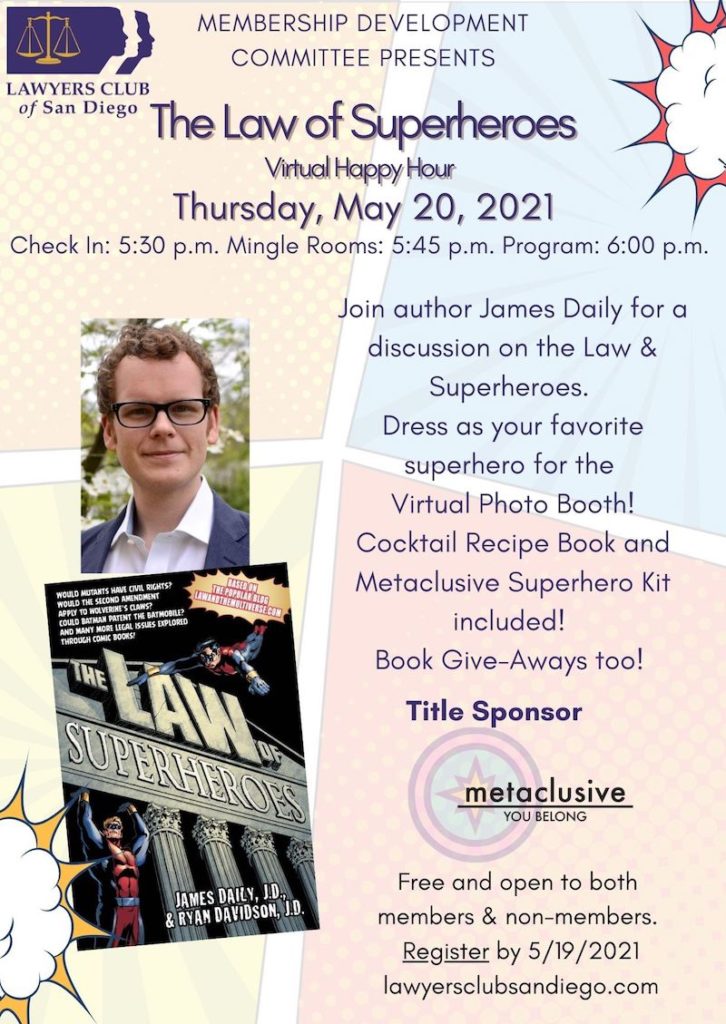(This guest post was written by Scott Maravilla. Thanks Scott! NB: This post includes minor spoilers for She-Hulk episode 3! And in case you’re wondering, I have been keeping up with the series, and I give it overall good marks for legal accuracy so far. The mistrial was exactly what would have happened, and large law firm partner’s Holden Holliway’s response to Jen’s request to pick her own assistant was pitch-perfect.)
In the She-Hulk: Attorney-at-Law episode “The People v. Emil Blonsky” (S1:E3), after testifying on behalf of Emil Blonsky at his parole hearing, Wong is called out by the chair of the California Parole Board for “admitt[ing] to facilitating a prisoner escape which is a crime.” At which Wong quickly escapes through one of his magic portals. The chair is referring to California Penal Code 4550 which makes it a criminal offense punishable by imprisonment up to four years to “rescue any prisoner from any prison.” The case appears cut and dry. Wong used his portal power to break The Abomination out of his cell for an underground fight club tournament (See Shang-Chi and the Legend of the Ten Rings).
Not so fast, California recognizes necessity as an affirmative defense to helping someone, here The Abomination, break out of jail. Necessity is where the conduct in question is undertaken to prevent a greater harm. In the context of a prison break, while viable, it “is extremely limited in its application . . . because of the rule that upon attaining a position of safety from the immediate threat, the prisoner must promptly report to the proper authorities.” People v. Lovercamp. In Lovercamp, two women prisoners who were convicted of attempting to escape offered as their defense that they were being threatened by a group of fellow inmates. The threats were described as “f**k or fight” which resulted in a fight followed by more threats. Prison officials did nothing for the women’s protection. As a consequence, they attempted to escape because they “felt they had no choice but to leave the institution in order to save themselves.” On appeal, the court remanded the case back to trial to consider this defense.
While this case illustrates the defense, it is only from the point of view of the prisoner as opposed to an outside third party like Wong. But, with superhuman law, comes superhuman defenses. Let’s examine some of the key elements of necessity in the context of the work of the Sorcerer Supreme. To prevail on a necessity defense, the person must have acted out of an objective actual knowledge that they were preventing some form of harm. The objective aspect is determined by whether a reasonable person would also have acted in the same way under similar circumstances. In this case, would an aspiring Sorcerer Supreme have broken The Abomination out of jail to guard our dimension.
First, we must examine the importance of the Sorcerer Supreme. As Screen Rant defines the job: “The Sorcerer Supreme carries the intimidating weight of protecting the world by maintaining a mystical barrier that guards against invasions from other realms.” Scott Silson, What Does Sorcerer Supreme Even Mean & Why It Matters To Doctor Strange. As Stephen Strange was snapped out of existence by Thanos, it was up to Wong to become the next Sorcerer Supreme to protect our world from, as we saw in Doctor Strange, very real mystical threats. As Wong tells Jennifer Walters (who hopefully will be representing him), he “extracted [The Abomination] from the prison against his own wishes” because he “required a worthy opponent as part of [his] training to become Sorcerer Supreme.” So if Wong does not break Blonsky out of prison to complete his training, the Earth would be in danger of imminent invasion from other realms like we saw in Doctor Strange with Dormamu.
But again, not so fast, necessity requires no reasonable alternatives. Yet that may be the case here as well. When She-Hulk takes place, other powerful beings are unavailable. As we see in the post-credits scene in Shang-Chi and the Legend of the Ten Rings and episode one of She-Hulk: Attorney-at-Law, Bruce Banner is incapacitated from his own snap at the conclusion of Avengers: Endgame. Similarly, Thor is off world having left with The Guardians of the Galaxy at the conclusion of Endgame. That reasonably leaves The Abomination as the remaining superhuman equivalent to test Wong’s powers. Thus, Jennifer Walters can make a good case to a jury that Wong was just saving us from mystical threats by training to fill the role left vacant by Dr. Strange. You be the jury.



